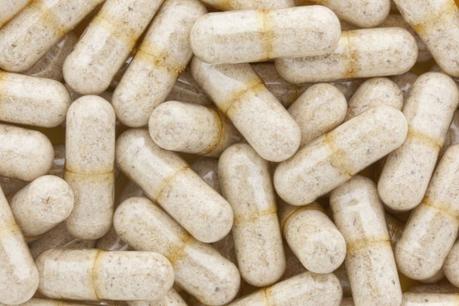As much as we try to do the right things to keep our bodies healthy and strong - exercising regularly, sleeping well, knowing how to manage stress, and eating a balanced diet - that's no small task, and it's normal to traps. occasionally a bit short.
Diet can be particularly difficult for some people, and if getting all the essential vitamins and minerals your body needs to stay healthy is a problem, you're not alone, especially when it comes to fiber: only 7% of adults are meeting their daily fiber goals (25 g for women and 31 g for men ages 31-50), according to a large study by researchers at Texas Woman's University. Fiber plays a role in everything from smooth digestion to blood sugar regulation, so you should definitely aim to get enough.
You can make a conscious effort to increase your fiber-rich foods such as fruits and vegetables, beans, nuts and whole grains, but some people may benefit from expert help from a doctor, dietitian or nutritionist - and don't be surprised if they advise you to take a funny-sounding supplement called psyllium husk to increase your fiber intake.
"Psyllium may be useful for people who prefer a natural approach to improving their health, especially if they suffer from constipation, high cholesterol or diabetes," says Amy Richter, RDN as fiber is essential for managing these problems and conditions.
Here's everything you need to know about psyllium husk, the world's most exciting new supplement in wellness.
What is psyllium husk?
Psyllium is a type of fiber derived from a shrub - which is why the 'husk' comes in when we talk about the supplement form - and you can find it in health food stores, pharmacies and online as whole husks, powders and capsules. Powders can be mixed with water, juice or other liquids, Richter. Meanwhile, whole psyllium husk can be used as an ingredient and works best for making bread because of their texture. Franziska Spritzler, RD, a registered dietitian and certified diabetes educator adds. For those who prefer to just pop a pill and be done with it, or who don't like the taste or texture of psyllium, capsules are a convenient option, according to Richter.
Editor's Note: Always be sure to consult a doctor or dietitian before introducing a new supplement, such as psyllium husk, into your daily regimen.
When choosing any type of supplement, "It is very important to look for products that have been third-party tested by a group such as NSF, USP, or ConsumerLab.com - this means that the product has been tested to confirm that it contains the specified amount of psyllium, and is free of or has acceptable levels of contaminants," explains Jennifer Lefton, RDN, a registered dietitian nutritionist and certified nutrition support physician.
Health benefits
It can lower cholesterol levels.
"Psyllium is like a little broom in your digestive system, sweeping up cholesterol from food and carrying it out of the body. This forces your body to use cholesterol in the blood to replace what has been lost, effectively lowering its overall levels," explains Richter. A 2018 meta-analysis in the American Journal of Clinical Nutrition suggests that dietary fiber such as psyllium husk may lower "bad" LDL cholesterol and help prevent the risk of cardiovascular disease associated with atherosclerosis (thickening or hardening of the arteries of the heart).

It could help lower blood pressure.
Studies have shown that psyllium husks may help lower blood pressure in people with hypertension, says Richter. This makes sense, because fiber in general has been shown to have a small blood pressure lowering effect. Monitoring blood pressure is important because high blood pressure is one of the risk factors for heart disease.
It can improve your digestion.
For people with diarrhea and constipation, psyllium husks in some form may be the solution. "One of the reasons why psyllium husk is so good for you is that it is rich in a special type of soluble fiber called [is] quite viscous, meaning it forms a gel in your digestive tract," explains Desiree Nielsen, RD, author of Good for your intestines. "Psyllium has the ability to bind loose stools and increase the amount of water in the stool, making it easier to excrete." As an added bonus, psyllium is not highly fermentable in the intestines, meaning it is less likely to contribute to gas and bloating," which is super helpful for those with digestive problems like irritable bowel syndrome [IBS] and constipation," Nielsen adds. Science agrees: research shows that supplementation with psyllium fiber is effective improving constipation And treating IBS.
It can help control blood sugar levels.
Psyllium has been shown to be a successful intervention among diabetes patients: it slows the digestion and absorption of carbohydrates to help prevent spikes in blood sugar levels after meals, says Richter. "Soluble fiber also helps slow the movement of nutrients through the digestive tract, which appears to have a number of different benefits, such as increasing the feeling of fullness and slowing the rate at which blood sugar levels rise - both of which can be helpful for people with type 3. two diabetes," adds Nielsen.

Editorial intern

Director of Nutrition Laboratory
